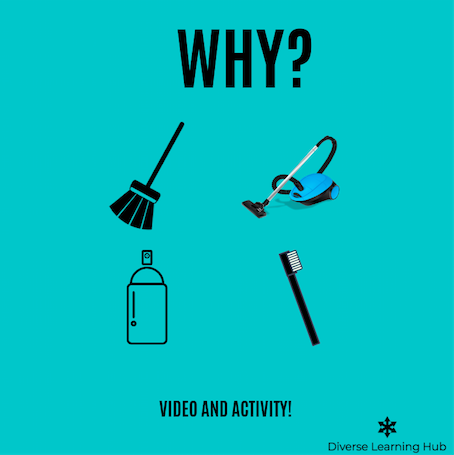3 ways to teach life skills to special education students
In many self-contained programs, the school often asks teachers to teach common core standards. But as a teacher, I often asked myself- what about life skills? What about cooking, cleaning, laundry?! How are my students going to function and live independently? I wanted to teach life skills and functional academics so that my students could thrive on their own. But what are the most effective ways to teach students these life skills?
Complete a task analysis for each life skills area
When completing a task analysis, write down the steps that are needed to complete a specific task. Task analyses break down complex tasks into small, more manageable tasks. This allows tasks learners to take on larger tasks like laundry or brushing teeth. Visual learners can use task analyses with visual guides. Create a task analysis for all life skills that your child is struggling with. Break down the process of washing dishes into each and every step. Pinpoint the steps that are difficult for your student and spend extra time working on developing the skills needed to complete those hard steps.
2. Explain the importance of each life skill
Children need to know the “why” behind each life skills task they are completing. They may wonder, “Why do I need to brush my teeth? Why do I need to wear deodorant”. These hygienic tasks may be overwhelming for some children as they may cause children to experience sensory overload. Children need to understand why they are doing something! Diverse Learning Hub offers life skills videos on topics like deodorant, brushing teeth, and cleaning. These videos explain why a task is important and also explain the steps necessary to complete each task. Review these videos with your children and ask them to take interactive quizzes on each topic after viewing.
3. Role play different life skills with your students/children
Parents and teachers should work on role playing life skills that require practice such as using public transit or paying for food at a grocery store. If you are a teacher, set up a store in your classroom. Assign the role of cashier to one of your students and have other students use classroom currency to practice buying goods. After practice in the classroom, take a field trip to a nearby grocery store and have students practice buying items there.
If you are a parent, take your child on various forms of public transit. Have your child practice buying tickets, finding their seat, and behaving appropriately along the ride. After continuous practice, your child will become more and more independent



